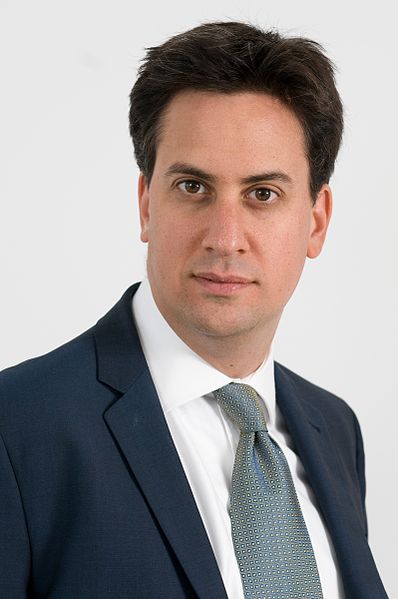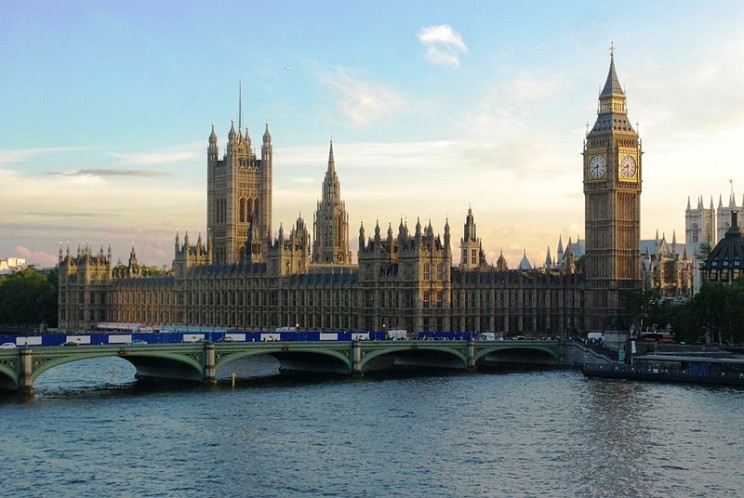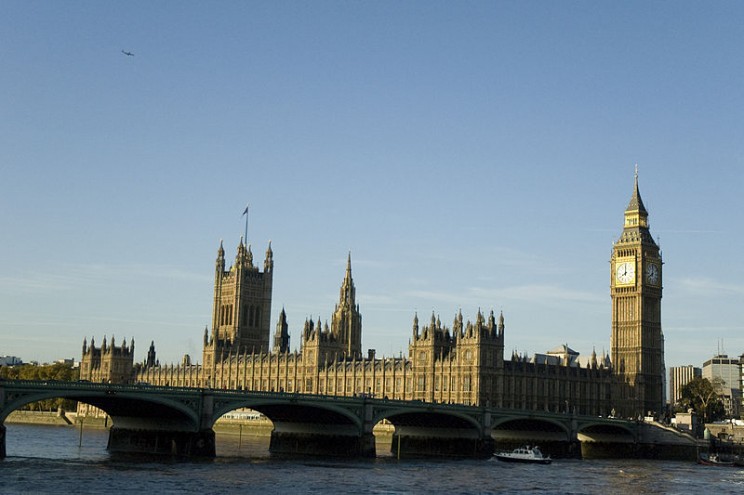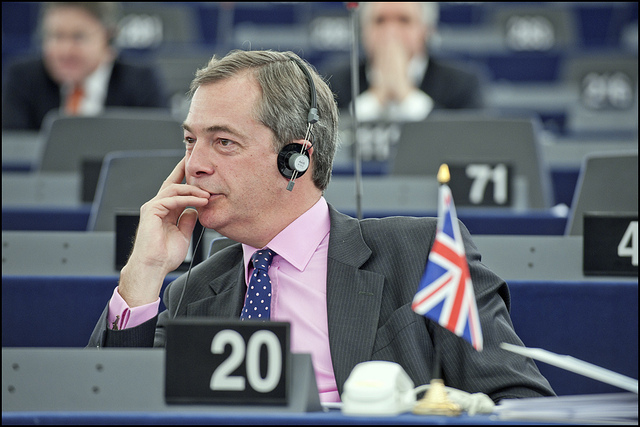new posts in all blogs
Viewing: Blog Posts Tagged with: flinders, Most Recent at Top [Help]
Results 1 - 7 of 7
How to use this Page
You are viewing the most recent posts tagged with the words: flinders in the JacketFlap blog reader. What is a tag? Think of a tag as a keyword or category label. Tags can both help you find posts on JacketFlap.com as well as provide an easy way for you to "remember" and classify posts for later recall. Try adding a tag yourself by clicking "Add a tag" below a post's header. Scroll down through the list of Recent Posts in the left column and click on a post title that sounds interesting. You can view all posts from a specific blog by clicking the Blog name in the right column, or you can click a 'More Posts from this Blog' link in any individual post.

By: DanP,
on 8/6/2014
Blog:
OUPblog
(
Login to Add to MyJacketFlap)
JacketFlap tags:
shark,
asylum,
sharks,
flinders,
political spike,
seekers,
tiger shark,
nauru,
news,
Books,
democracy,
Politics,
Current Affairs,
immigration,
great white shark,
illegal immigration,
asylum seekers,
*Featured,
Defending Politics,
Matthew Flinders,
Political Spike with Matthew Flinders,
Australian politics,
captain matthew flinders,
Add a tag

By Matthew Flinders
We all know that the sea is a dangerous place and should be treated with respect but it seems that Australian politicians have taken things a step (possibly even a leap) further. From sharks to asylum seekers the political response appears way out of line with the scale of the risk.
In the United Kingdom the name Matthew Flinders will rarely generate even a glint of recognition, whereas in Australia Captain Matthew Flinders (1774-1814) is (almost) a household name. My namesake was not only the intrepid explorer who first circumnavigated and mapped the continent of Australia but he is also a distant relative whose name I carry with great pride. But having spent the past month acquainting myself with Australian politics I can’t help wonder how my ancestor would have felt about what has become of the country he did so much to put on the map.
The media feeding frenzy and the political response surrounding shark attacks in Western Australia provides a case in point. You are more likely to be killed by a bee sting than to be killed by a shark attack while swimming in the sea off Perth or any of Western Australia’s wonderful beaches. Hundreds of thousands of people enjoy the sea and coastline every weekend but what the media defined as ‘a spate’ of fatal shark attacks (seven to be exact) in between 2010-2013 led the state government to implement no less than 72 baited drum lines along the coast. Australia’s Federal Environment Minister, Greg Hunt, granted the Western Australian Government a temporary exemption from national environment laws protecting great white sharks, to allow the otherwise illegal acts of harming or killing the species. The result of the media feeding frenzy has been the slow death of a large number of sharks. The problem is that of the 173 sharks caught in the first four months none were Great Whites and the vast majority were Tiger Sharks – a species that has not been responsible for a fatal shark attack for decades.
The public continues to surf and swim, huge protests have been held against the shark cull and yet the Premier of Western Australia, Colin Barnett, insists that it is the public reaction against the cull that is ‘ludicrous and extreme’ and that it will remain in place for two years.

If the political approach to sharks appears somewhat harsh then the approach to asylum seekers appears equally unforgiving. At one level the Abbott government’s ‘Stop the Boats’ policy has been a success. The end of July witnessed the first group of asylum seekers to reach the Australian mainland for seven months. In the same period last year over 17,000 people in around 200 boats made the treacherous journey across the ocean in order to claim asylum in Australia. ‘Operation Sovereign Borders’ has therefore ‘solved’ a political problem that many people believe simply never existed. The solution – as far as one exists – is actually a policy of ‘offshore processing’ that uses naval intervention to direct boats to bureaucratic processing plants on Manus, Nauru, or Christmas Island. Like modern day Robinson Crusoe, thousands of asylum seekers find themselves marooned on the most remote outposts of civilization. But then again – out of sight is out of mind.
The 157 people (including around fifty children) who made it to the mainland last week exemplify the harsh treatment that forms the cornerstone of the current approach. After spending nearly a month at sea on an Australian customs vessel they were briefly flown to the remote Curtin Detention Centre but when the asylum seekers refused to be interviewed by Indian officials they were promptly dispatched to the island of Nauru and its troubled detention centre (riots, suicides, self-mutilation, etc.). Those granted asylum will be resettled permanently on Nauru while those refused will be sent back to Sri Lanka (the country that most of the asylum seekers were originally fleeing via India). Why does the government insist on this approach? Could it be the media rather than the public that are driving political decision-making? A recent report by the Australian Institute of Family Studies found that the vast majority of refugees feel welcomed by the Australian public but rejected by the Australian political institutions. How can this mismatch be explained? The economy is booming and urgently requires flexible labor, the asylum seekers want to work and embed themselves in communities; the country is vast and can hardly highlight over-population as the root of the problem.
There is an almost palpable fear of a certain type of ‘foreigner’ within the Australian political culture. Under this worldview the ocean is a human playground that foreign species (i.e. sharks) should not be allowed to visit. The world is changing as human flows become more fluid and fast-paced – no borders are really sovereign any more. And yet in Australia the political system remains wedded to ‘keeping the migration floodgates closed’, apparently unaware of just how cruel and unforgiving this makes Australia look to the rest of the world. What would Captain Matthew Flinders think about this state of affairs almost exactly 200 years after his death?
From sharks to asylum seekers Australian politics seems ‘all at sea’.
The post Sharks, asylum seekers, and Australian politics appeared first on OUPblog.


By: DanP,
on 7/2/2014
Blog:
OUPblog
(
Login to Add to MyJacketFlap)
JacketFlap tags:
Defending Politics,
Matthew Flinders,
flinders,
voter apathy,
Political Spike with Matthew Flinders,
political spike,
hyper-democracy,
problem with democracy,
social media commentary,
democracy’,
Books,
democracy,
Politics,
Current Affairs,
Apathy,
TedX,
UK politics,
*Featured,
Add a tag

By Matthew Flinders
It’s finally happened! After years of watching and (hopeful) waiting, tomorrow is the day that I finally step into the TEDx arena alongside an amazing array of speakers to give a short talk about ‘an idea worth spreading’. The theme is ‘Representation and Democracy’ but what can I say that has not already been said? How can I tackle a big issue in just a few minutes? How do I even try and match-up to the other speakers when they include people like the pro-democracy campaigner and Nobel Peace Prize winner Aung San Suu Kyi? Dare I suggest the problem is ‘too much’ democracy rather than ‘too little’?
The ‘three-minute thesis test’ is a relatively new form of professional training in which Ph.D. students need to provide a clear and succinct account of their thesis and why it matters in just 180 seconds. The aim is to not only make the students think and focus on the core intellectual ‘hook’ of their research but also to hone their communication skills so they can talk to multiple audiences in multiple ways about their research. This is all jolly good and to be encouraged. TEDx talks, however, represent something of the ‘über-three minute thesis test’ in the sense that not only must you tackle a big issue but you must also do so in a way that is sophisticated yet accessible, entertaining but serious and thought provoking but not ridiculous. You get eight minutes to do this, not three, but you only get one shot at giving the talk in front of a large live audience and an even larger online audience of many millions. This is reputational poker. Here is the essence of my pitch.
The title of my talk is ‘The Problem with Democracy’. However, the problem with even talking about ‘the problem with democracy’ is that it is a loaded statement. Loaded in the sense that it suggests that (1) there is a single ‘problem’ when it might be argued a discussion of ‘the problems’ [plural] with democracy might offer a more rounded and sophisticated set of answers; and (2) loaded in the sense that it accepts that ‘a problem’ exists. I want to take on and challenge each of these assumptions in turn but before this I want to make the rather unfashionable – even heretical – suggestion [and this is my ‘hook’] that one of the problems with contemporary democracy might be that in some parts of the world we have too much democracy rather than too little. Let’s call this problem ‘hyper-democracy’.
Something seems to have gone wrong in the relationship between the governors and the governed. Recent elections at all levels display not only low turnouts but also a shift towards more extreme populist parties that offer a general message of anti-politics and a mantra of ‘If only we could get rid of all the terrible politicians then everything would be fine!’ The problem is that you cannot have democracy without politics and you cannot have politics without politicians.

For all sorts of reasons, politics is increasingly viewed as little more than a spectator sport or a retail activity. Yet, democratic politics is not a ‘click-and-collect’ online shopping channel where you make your choice and expect your goods to arrive. And if you don’t get what you want, it has become too easy to heckle – or should I say to tweet or blog – from the sidelines. Could it be that we have too much of the wrong kind of democracy and too little of the right kind of democracy? Democracy is about compromise and a sense of proportion. We don’t always get what we want, as individuals or specific groups, in a democracy but that’s just the price we pay for living in a free society as opposed to a fear society (this might be a good time to remind you that, as the research of Freedom House illustrates, most of the world’s population do not live in democratic regimes).
We may have hit a point where our political system has become too sensitive to the public’s opinions and anxieties. Just think about the second half of the twentieth century; the growth in the number and range of ‘sleazebusters’, watchdogs, and audit bodies, the increasing role of the courts and the judicialization of politics, not to mention the role of the internet and an increasingly aggressive media in holding political processes and politicians to account. This is all good. It’s democratic progress. It’s part of John Keane’s wonderful book The Life and Death of Democracy and he calls this stage of far greater popular controls over politicians ‘monitory democracy’. But you could call this ‘hyper-democracy’ because the 24/7 news-cycle creates a perpetual storm of scandal and intrigue.
Could it be that we need to give those politicians we elect just a little more leeway and ‘space’ in order to allow them to focus on delivering their promises? Could it be that politicians have become too sensitive to the immediate demands of the loudest sectional groups or the latest focus group or what’s trending on twitter? The reason I dare to ask this question is for the simple reason that ‘hyper-democracy’ does not seem to be producing contented democrats but disaffected democrats. It seems to be fuelling increasing mistrust and mass misrepresentation by the media.
However, on the one hand I am criticizing the public for not getting involved themselves and viewing politics as a spectator sport, but on the other hand I am emphasizing that politicians need a little breathing space. How do I square this circle in a manner that offers a solution to the problem of democracy? I do it like this: the problem with hyper-democracy is too much of a shallow, disengaged, and generally aggressive form of individualized market-democracy and too little of a deeper and more socially embedded model based on active and engaged citizenship. We need less shouting and more listening, less pessimism and more optimism, but most of all we need more people – from a broader range of backgrounds – to step into the arena in order to demonstrate just why democratic politics matters.
Matthew Flinders is Founding Director of the Sir Bernard Crick Centre for the Public Understanding of Politics at the University of Sheffield  and also Visiting Distinguished Professor in Governance and Public Policy at Murdoch University, Western Australia. He is also Chair of the Political Studies Association of the United Kingdom and the author of Defending Politics (2012).
and also Visiting Distinguished Professor in Governance and Public Policy at Murdoch University, Western Australia. He is also Chair of the Political Studies Association of the United Kingdom and the author of Defending Politics (2012).
Subscribe to the OUPblog via email or RSS.
Subscribe to only politics articles on the OUPblog via email or RSS.
Image credit: Five young people shouting into camera. © RapidEye via iStock Photo.
The post Do we have too much democracy? appeared first on OUPblog.


By: Alice,
on 6/4/2014
Blog:
OUPblog
(
Login to Add to MyJacketFlap)
JacketFlap tags:
turnout,
Nigel Farage,
UKIP,
farage,
oleari,
Books,
Politics,
Current Affairs,
European Union,
nigel,
*Featured,
Defending Politics,
Matthew Flinders,
flinders,
fallout,
European Parliament,
Political Spike with Matthew Flinders,
european elections,
far left parties,
far right parties,
Add a tag

By Matthew Flinders
The earthquake has happened, the tremors have been felt, party leaders are dealing with the aftershocks and a number of fault-lines in contemporary British and European politics have been exposed. Or have they? Were last month’s European elections really as momentous as many social and political commentators seem to believe?
‘Failure’ is a glib and glum word. Its association with all things ‘political’ has become the dominant narrative of recent decades. Indeed, possibly the only surprising element of the success of the anti-European Union and protest parties last month was that they had not achieved success earlier. The share of the anti-EU and protest parties increased from 164 to 229 seats in the European Parliament (21.4% to 30.5%) and there is no doubt that European politics is set to become more fragile and unpredictable as a result. But surely this phenomenon represents not the failure of politics but the success of politics in the sense that widespread public frustration and concern has led to significant change. Put slightly differently, public opinion has changed the balance of power within the political architecture but without the shedding of blood.
Forgive me for daring to make such an unfashionable argument but there is a second issue relating to the subsequent post-earthquake political ‘settling’ – that is that the fallout needs to remember the turnout. This is a critical point. In many ways the people have not spoken as most of them stayed at home or simply had more interesting things to do with their time. Across Europe the average turnout was 43% and in the United Kingdom this figure was down to 34.2%. The highest was Belgium with 90% turnout with its non-enforced system of compulsory voting. Slovakia was at the bottom of the turnout charts with just 13%, but this fact is in itself critical when placed against the danger that mainstream political parties will over-react towards the vocal minority.
To make such an argument is not in any way undermine the need for the established political parties to listen and change. The rise of UKIP in the UK, the Danish People’s Party in Denmark, the Front National in France, and the Freedom Party in Austria — not to mention the far-left wing parties in the form of SYRIZA in Greece or the Five Star Movement in Italy — signals strong social currants that need to be channeled. The fluidity and energy of this current is reflected in Spain’s new leftist party Podemos [We Can]. This party did not even exist eight weeks ago and yet it now has five seats in the European parliament. Change has undoubtedly occurred but the turnout was low and these parties do not represent a coherent political group, ranging from parties with experience of government through to fringe groups and neo-fascists. They are generally a collection of ‘None-of-the-above’ parties.
Enmity from the post-millennium global economic crisis has catapulted these ‘None-of-the-above’ parties into office. The failure of the economic system created its own political fallout and the reverberations were felt in the recent European elections. If democracy works then the mainstream groups in the European Parliament may well demonstrate that reform is possible and respond to voters; if democracy fails then we’ll be left with a terrible choice between more Europe or no Europe that populist and nationalistic parties will exploit in favor of the latter.
Such gloomy predictions lead me – almost inevitably – to a word about Nigel Farage: the King of the ‘none-of-the-above-party’. My holiday reading last week (Cromer, North Norfolk, very nice due to the town being trapped in a time warp) was Sigmund Freud’s The Joke and Its Relation to the Unconscious (1905). This is not a funny book but when reading it I could not help but think of King Nigel. He is a joker and for him ‘every pub is a parliament’ but this is both the asset and the problem. His jokes and banter are accessible to everyone and provide a sense of relief or release by opening-up issues that were previously off-limits. For Freud this is the social role and deeper meaning of jokes and humor but the problem for Farage is that he is generally regarded comically rather than seriously. He is a Spitting Image character that does not need a puppet. Although many people may vote for him and his party in what they mistakenly believe to be ‘secondary’ or ‘minor’ elections – they might even do so at the Newark By-election next week – they are far less likely to do so at next year’s General Election.
 Matthew Flinders is Founding Director of the Sir Bernard Crick Centre for the Public Understanding of Politics at the University of Sheffield and also Visiting Distinguished Professor in Governance and Public Policy at Murdoch University, Western Australia. He is the author of Defending Politics (2012).
Matthew Flinders is Founding Director of the Sir Bernard Crick Centre for the Public Understanding of Politics at the University of Sheffield and also Visiting Distinguished Professor in Governance and Public Policy at Murdoch University, Western Australia. He is the author of Defending Politics (2012).
Subscribe to the OUPblog via email or RSS.
Subscribe to only politics articles on the OUPblog via email or RSS.
The post After the storm: failure, fallout, and Farage appeared first on OUPblog.


By: DanP,
on 5/7/2014
Blog:
OUPblog
(
Login to Add to MyJacketFlap)
JacketFlap tags:
political polls,
dante,
flinders,
miliband,
spin doctor,
blasio,
axelrod’s,
advert,
British politics,
labour,
david cameron,
general election,
*Featured,
boris johnson,
american politics,
ed miliband,
Defending Politics,
Matthew Flinders,
Bill de Blasio,
Listening for Democracy,
Andrew Dobson,
Australian politics,
Dante de Blasio,
Lib Dems,
Nigel Farage,
Politics,
Media,
conservatives,
Add a tag

By Matthew Flinders
First it was football, now its politics. The transfer window seems to have opened and all the main political parties have recruited hard-hitting spin-doctors — or should I say ‘election gurus’ — in the hope of transforming their performance in the 2015 General Election. While some bemoan the influence of foreign hands on British politics and others ask why we aren’t producing our own world-class spin-doctors I can’t help but feel that the future of British politics looks bleak. The future is likely to be dominated by too much shouting, not enough listening.
Dante is a fifteen-year old African-American teenager with a big Afro hairstyle. He looks into the camera and with a timid voice tells the viewer ‘Bill de Blasio will be a Mayor for every New Yorker, no matter where they live or what they look like – and I’d say that even if he weren’t my dad’. This was the advert that transformed Bill de Blasio from a long-shot into a hot-shot and ultimately propelled him into office as the 109th and current Mayor of New York. De Blasio also benefitted from a well-timed sexting scandal and an electorate ready for change but there can be no doubting that the advert in which his son, Dante de Blasio, featured was a game changer. Time Magazine described it as “The Ad That Won the New York Mayor’s Race”, the Washington Post named it ‘Political Advert of 2013’ — “No single ad had a bigger impact on a race than this one”.
 Such evidence of ‘poll propulsion’, ‘soft power’ and ‘data optimization’ has not gone without notice on this side of the Atlantic and a whole new wave of election gurus have been recruited to help each of the main three political parties (Nigel Farage, of course, would never recruit such blatant overseas talent, ahem). The Liberal Democrats have recruited Ryan Coetzee who played a leading role significantly increasing the Democratic Alliance’s share of the vote in South Africa. The Conservatives have appointed the Australian Lynton Crosby with his forensic focus on ‘touchstone issues’, while last month the Labour Party revealed they had hired one of President Obama’s key strategists, David Axelrod, to craft a sharp political message and re-brand Ed Miliband.
Such evidence of ‘poll propulsion’, ‘soft power’ and ‘data optimization’ has not gone without notice on this side of the Atlantic and a whole new wave of election gurus have been recruited to help each of the main three political parties (Nigel Farage, of course, would never recruit such blatant overseas talent, ahem). The Liberal Democrats have recruited Ryan Coetzee who played a leading role significantly increasing the Democratic Alliance’s share of the vote in South Africa. The Conservatives have appointed the Australian Lynton Crosby with his forensic focus on ‘touchstone issues’, while last month the Labour Party revealed they had hired one of President Obama’s key strategists, David Axelrod, to craft a sharp political message and re-brand Ed Miliband.
It was David Axelrod’s former Chicago firm — ‘AKPD Message and Media’ — that had made the Dante advert for Bill de Blasio.
Of course, such spin-doctors, advisers, and consultants have always and will always exist in politics. The existence of new forms of off-line and on-line communication demands that political parties constantly explore new techniques and opportunities to improve their standing but I cannot help feel that with the recruitment of such powerful electoral strategists we risk losing touch with what politics is really about. We risk widening the worrying gap that already exists between the governors and the governed. ‘Resilience’, it would appear, seems to be the buzzword of modern party politics as a General Election approaches. It is about who can promote a powerful narrative and deliver an aggressive onslaught; it is about a form of ‘attack politics’ in which a willingness to listen or compromise is derided as weakness, and weakness cannot be tolerated; it is a form of politics in which family and friends become political tools to be deployed in shrewd, cunning and carefully crafted ways.
But does turning to the masters of machine politics from Australia and America bring with it the risk that the campaign will become too polished, too professional, too perfect?
David Axelrod’s role in relation to Ed Miliband provides a case in point. Apparently opinion polls suggest that poor Ed is viewed as too ‘nerdy’ and more than a little bit ‘weird’. The strategists suggest that this ‘image problem’ is a weakness that must be addressed through a process of re-branding. The danger, of course, of course is that by knocking-off all Ed’s quirks and peculiarities you actually end up with just another production line professional politician. Personally, I quite like politicians that are a bit different, even weird. Isn’t that why people find Boris Johnson and Nigel Farage so annoyingly refreshing?
A really smart election strategist might dare to think a little differently; to turn the political world upside-down by focusing not on who can shout the loudest for the longest but on the art of listening. As Andrew Dobson’s brilliant new book — Listening for Democracy — underlines the art of good listening has become almost completely ignored in modern politics despite being prized in daily conversation. Were any of the foreign election gurus employed for their listening skills? No. And that’s the problem. That’s why the future feels so bleak.
Matthew Flinders is Founding Director of the Sir Bernard Crick Centre for the  Public Understanding of Politics at the University of Sheffield and also Visiting Distinguished Professor in Governance and Public Policy at Murdoch University, Western Australia. He is the author of Defending Politics (2012).
Public Understanding of Politics at the University of Sheffield and also Visiting Distinguished Professor in Governance and Public Policy at Murdoch University, Western Australia. He is the author of Defending Politics (2012).
Subscribe to the OUPblog via email or RSS.
Subscribe to only politics articles on the OUPblog via email or RSS.
Image credit: Ed Miliband. UK Department of Energy. Crown Copyright via WikiCommons.
The post Dante and the spin doctors appeared first on OUPblog.


By: DanP,
on 4/2/2014
Blog:
OUPblog
(
Login to Add to MyJacketFlap)
JacketFlap tags:
Humanities,
UK politics,
*Featured,
Art & Architecture,
Arts & Leisure,
Defending Politics,
Matthew Flinders,
flinders,
Political Spike with Matthew Flinders,
arts projects,
political spike,
Sir Bernard Crick,
South Yorkshire,
reconnection,
specifics’,
art,
Politics,
culture,
evidence,
society,
Add a tag

By Matthew Flinders
Why does art and culture matter in the twenty-first century? What does it actually deliver in terms of social benefits? An innovative new participatory arts project in South Yorkshire is examining the ‘politics of art’ and the ‘art of politics’ from a number of new angles.
“The general value of arts and culture to society has long been assumed,” a recent report from the Arts Council acknowledges, “while the specifics have just as long been debated.” It is this focus on ‘the specifics’ that is most interesting because in times of relative prosperity there was little pressure from neither public nor private funders to demonstrate the broader social impact or relevance of the arts. In times of austerity, however, the situation is very different. A focus on the STEM subjects (science, technology, engineering, and mathematics) risks eviscerating the funding for the arts and humanities unless these more creative and less tangible intellectual pursuits can demonstrate their clear social value. The vocabulary of ‘social return’, ‘intellectual productive capacity’, ‘economic generation’ may well grate against the traditional values and assumptions of the arts and culture community but it is a shadow that cannot be ignored.
The publication of The Impact of the Social Sciences (Sage, 2014) provides more than a sophisticated analysis of the value of the social sciences across a range of economic, cultural, and civic dimensions. It provides a political treatise and a strategic piece of evidence-based leverage that may play an important role in future debates over the distribution of diminishing public funds. I have no doubt that the impact of the arts and humanities is equally significant. But the problem is that the systematic creation of an evidence base remains embryonic. My personal belief that the arts and humanities are educationally critical is, in many quarters, meaningless without demonstrable evidence to support these beliefs. The methodological and epistemological challenges of delivering that research are clearly significant but as the Arts Council emphasizes ‘it is something that arts and culture organizations will have to do in order to secure funding from both public and private sources’.
As a political scientist I have always been fascinated with the relationship between art and politics. Though heretical to suggest to the arts community, I have often thought that the role of the professional politician and the professional artist (indeed, with the amateur politician and the amateur artist) were more similar than was often acknowledged. Both seek to express values and visions, to inspire hope and disgust, and both wish to present a message. It is only the medium through which that message is presented that differs (and relationships of co-option, patronage, and dependency are common between these professions). But having (crudely) established a relationship between art and politics, could it be that the true value of the arts lies not in how it responds to the needs of the economy but in how it responds to the rise of ‘disaffected democrats’ and the constellation of concerns that come together in the ‘why we hate politics’ narrative?

In a time of increasing social anomie and political disengagement, especially amongst the young and the poor, can participatory arts projects provide a way of reconnecting communities?
François Matarasso’s Use or Ornament (1997) provides one of the most systematic explorations of this question and concluded that “one of the most important outcomes of [the public’s] involvement in the arts was finding their own voice, or perhaps, the courage to use it.” More recently, the New Economics Foundation’s report Diversity and Integration (2013) suggested that young people who participated in arts programmes were more likely to see themselves as “holding the potential to do anything I want to do” and being “able to influence a group of people to get things done.” Other studies tentatively offer similarly positive conclusions but with little analytical depth in terms of identifying between political reconnection, civic reconnection or personal reconnection (in terms of personal understanding, confidence and aspiration). To return to the Arts Council’s recent report – The Wider Benefits of Art and Culture to Society – the existing research base is light on ‘the specifics’.
It is for exactly this reason that the Sir Bernard Crick Centre for the Public Understanding of Politics has joined forces with ‘Art in the Park’ as part of the Arts and Humanities Research Council’s ‘Civic Value’ programme. Young people from all across South Yorkshire will be brought together to participate in an eight week arts project that uses music, film making, dance, writing, painting or whatever medium the young people select to explore social and political issues. Artists are embedded in the research and current and former politicians can be brought into the project to facilitate sessions if that is something the young people request. Surveys, focus groups, and interviews will capture how participating in the project affects political attitudes and understandings – positive, negative, political, civic, or personal – with the aim being able to answer if the arts can breathe life back into politics and reconnect communities. Now that really would be a wider benefit for society.
 Matthew Flinders is Founding Director of the Sir Bernard Crick Centre for the Public Understanding of Politics at the University of Sheffield and also Visiting Distinguished Professor in Governance and Public Policy at Murdoch University, Western Australia. He is the author of Defending Politics (2012). He was recently a winner in the ‘This is Democracy’ International Photography Competition – but his wife now claims she took the picture. Malaika Cunningham is the Research Officer for the project discussed in this article.
Matthew Flinders is Founding Director of the Sir Bernard Crick Centre for the Public Understanding of Politics at the University of Sheffield and also Visiting Distinguished Professor in Governance and Public Policy at Murdoch University, Western Australia. He is the author of Defending Politics (2012). He was recently a winner in the ‘This is Democracy’ International Photography Competition – but his wife now claims she took the picture. Malaika Cunningham is the Research Officer for the project discussed in this article.
Subscribe to the OUPblog via email or RSS.
Subscribe to only politics articles on the OUPblog via email or RSS.
Image credit: Parliament at sunset, public domain via WikiCommons.
The post Politics to reconnect communities appeared first on OUPblog.


By: DanP,
on 3/5/2014
Blog:
OUPblog
(
Login to Add to MyJacketFlap)
JacketFlap tags:
Politics,
voting,
Current Affairs,
Governance,
general election,
UK politics,
*Featured,
Bernard Crick,
Defending Politics,
Matthew Flinders,
flinders,
disengagement,
political system,
public divide,
UK voting,
voter apathy,
checkmark,
turnout,
Add a tag

By Matthew Flinders
Hands up if you’ve heard of National Voter Registration Day? And in the somewhat unlikely event that you have, did you realise that it took place last month?
If this momentous milestone passed you by, you’re not alone. Whatever 5 February means to the people of the United Kingdom, it’s safe to assume that electoral participation doesn’t figure prominently. This is not a surprise; it reflects a deep-seated public disengagement from politics, as indicated by the fact that only two thirds of eligible voters in the 2010 general election actually voted. Throughout the twentieth century, general election turnouts almost always exceeded 70%, but that’s a level of participation that has not been seen since 1997. Incidentally, the highest turnout since 1900 was 86.8% in January 1910, though only rate-paying men over the age of 21 could vote.
Low voter turnout is clearly a problem, but arguably a much greater worry is the growing inequality of that turnout. As a recent report from the Institute for Public Policy Research makes clear, the United Kingdom is very much a ‘divided democracy’, with electoral participation among the young and the poor declining dramatically. In the 1987 general election, for example, the turnout rate for the poorest income group was 4% lower than for the wealthiest. By 2010 the gap had grown to a staggering 23 points. A similar pattern is observable in relation to age groups. In 1970 there was an 18-point gap in turnout rates between 18–24-year-olds and those aged over 65; by 2005 this gap had more than doubled to over 40 points, before narrowing slightly to 32 points in 2010. ”If we focus on participation within these age-groups,” the IPPR report concludes “we can see that at the 2010 general election the turnout rate for a typical 70-year-old was 36 percentage points higher than that of a typical 20-year-old.”
If this isn’t bad enough there is little evidence that young people will simply start voting as they get older. On the contrary, the IPPR’s research suggests that “younger people today are less likely than previous generations to develop the habit of voting as they move into middle age.” These trends mean that politicians tend to address themselves to the older and richer sections of society – the people, in other words, that are most likely to vote. This, in turn, reinforces the views of the young and the poor that politicians don’t care about them. And that, naturally, leads to even greater political estrangement.
So what’s the solution? How do we re-establish a connection between ordinary people and politicians? In particular, how do we persuade the young and the poor that the political system really does have something to offer them?

The answers lie not in quick fixes or technological solutions – such as the introduction of compulsory voting, changing the ballot paper or promoting ‘digital democracy’ – but in adopting a fundamentally deeper, richer and more creative approach to democratic engagement. People will only vote – be they young or old, rich or poor – when they understand why democratic politics matters and what it can deliver. Therefore, to increase electoral participation we must focus on promoting the public understanding of politics from all perspectives (conservative, traditional, radical, etc.) in a way that demonstrates that individual responses to collective social challenges are rarely likely to be effective. It’s this deeper understanding, this notion of political literacy promoted by Sir Bernard Crick and defined as ‘a compound of knowledge, skills and attitudes’ that citizens can use to navigate the complex social and political choices that face us all. Political literacy can be seen as a basic social requirement that empowers people to become politically aware, effective, and engaged while also being respectful of differences of opinion or belief.
In this regard, the message from survey after survey is a dismal one. Large sections of the British public appear to know very little about the political system. Even relatively basic questions such as “What do MPs do?” or “What’s the difference between Parliament and the Executive?” tend to elicit a mixture of mild embarrassment and complete bafflement.
Given that levels of political literacy are so low, it’s little surprise that many people choose not to vote. They’re unaware of the very real benefits the political system delivers for them (clean water, social protection, healthcare, education, etc.) and they no longer believe that they can become the engine of real social change. And yet they can. Worse, by opting out of elections they risk diminishing their representation as politicians focus their messages on the groups that do vote. Young people are constantly reminded that to be “uneducated” – let alone innumerate or illiterate – is to risk deprivation and vulnerability, but in many ways to be politically illiterate brings with it exactly the same risks. Moreover, the impact of declining political literacy isn’t only felt at the individual level. With so many people in society alienated from politics, democracy itself is weakened
Such arguments are by no means abstract concerns. On 7 May 2015, a General Election will be held on the basis of individual voter registration rather than the previous system of household voter registration. Research suggests that although this transition is likely to increase electoral security it may also result in a considerable decline in levels of electoral participation amongst – yes, you’ve’ guessed it – the young and the poor. This is not a reason to turn back from individual registration but it is a reason to step-back and acknowledge that if we’re really serious about healing a divided democracy, then we need to focus on promoting engaged citizenship through different channels and processes. We need to take some risks and stir things up, but most of all we need a long-term plan for fostering political literacy.
Matthew Flinders is Founding Director of the  Sir Bernard Crick Centre for the Public Understanding of Politics at the University of Sheffield and also Visiting Distinguished Professor in Governance and Public Policy at Murdoch University, Western Australia. He is the author of Defending Politics (2012).
Sir Bernard Crick Centre for the Public Understanding of Politics at the University of Sheffield and also Visiting Distinguished Professor in Governance and Public Policy at Murdoch University, Western Australia. He is the author of Defending Politics (2012).
Subscribe to the OUPblog via email or RSS.
Subscribe to only politics articles on the OUPblog via email or RSS.
Image credit: Blue checkmark, photo by NFSphoto, via iStockphoto.
The post Look beneath the vote appeared first on OUPblog.


By: DanP,
on 9/4/2013
Blog:
OUPblog
(
Login to Add to MyJacketFlap)
JacketFlap tags:
chemical weapons,
Politics,
Current Affairs,
*Featured,
British Parliament,
UKpophistory,
legislation,
usa,
vote,
westminster,
UK politics,
syrian conflict,
flinders,
Syria,
parliament,
david cameron,
Defending Politics,
Matthew Flinders,
military intervention,
Primer Minister,
special relationship,
Add a tag
By Matthew Flinders
The 29 August 2013 will go down as a key date in British political history. Not only because of the conflict in Syria but also due to the manner in which it reflects a shift in power and challenges certain social perceptions of Parliament.
“It is very clear to me that Parliament, reflecting the views of the British people, does not want to see British military action,” the Prime Minster acknowledged, “I get that and the Government will act accordingly.” With this simple statement David Cameron mopped the blood from his nose and retreated to consider the political costs (both domestically and internationally) of losing the vote on intervention in the Syrian conflict by just 13 votes. While commentators discuss the future of ‘the special relationship’ with the United States, and whether President Obama will risk going into Syria alone, there is great value is stepping back a little from the heat of battle and reflecting upon exactly why the vote in the House of Commons matters. In this regard, three inter-related issues deserve brief comment.
The broader political canvas on which the vote on military intervention in Syria must be painted can be summed up by what is known as the Parliamentary Decline Thesis (PDT). In its simplest manifestation the PDT suggests that the government became gradually more ascendant over Parliament during the twentieth century. Texts that lamented the ‘decline’ or ‘death’ of Parliament — such as Christopher Hollis’ Can Parliament Survive? (1949), George Keeton’s The Passing of Parliament (1952), Anthony Sampson’s Anatomy of Britain (1962), Bruce Lenman’s The Eclipse of Parliament (1992), to mention just a few examples — have dominated both the academic study of politics and how Parliament is commonly perceived.
What the vote on Syria reveals is the manner in which the balance of power between the executive and the legislature is far more complex than the PDT arguably allows for. There is no doubt that the executive generally controls the business of the House but independent-minded MPs are far more numerous, and the strength of the main parties far more constrained, than is generally understood. (Richard Crossman’s introduction to the 1964 re-print of Walter Bagehot’s The English Constitution provides a wonderful account of this fact.)

Drilling down still further, this critique of the PDT can be strengthened by examining the changing constitutional arrangements for the use of armed force. The formal legal-constitutional position over the use of armed force is relatively straightforward: Her Majesty’s armed forces are deployed under Royal Prerogative, exercised in practice by the Prime Minister and Cabinet. However, the last decade has seen increased debate and discussion about Parliament’s role in approving the use of armed force overseas. From Tam Dalyell’s proposed ten-minute rule bill in 1999 that would have required ‘the prior approval — by a simply majority of the House of Commons — of military action by the UK forces against Iraq’ through to the vote on war in Iraq on 18 March 2003, the balance of power between the executive and legislature in relation to waging war has clearly shifted towards Parliament. Prior assent in the form of a vote on a substantive motion is now required before armed force can be deployed. The problem for David Cameron is that he is the first Prime Minister to have been defeated in a vote of this nature.
Defeat for the coalition government brings us to our third and final issue: public engagement and confidence in politics (and therefore politicians). The data and survey evidence on public attitudes to political institutions, political processes and politicians is generally overwhelmingly negative with a strong sense that MPs in particular have become disconnected from the broader society they are supposed to represent and protect. The public’s perception is no doubt related to the dominance of the PDT but on this occasion it appears that a majority of MPs placed their responsibility to the public above party political loyalties.
With less than 22% of the public currently supporting military intervention in Syria, Parliament really has ‘reflected the views of the British people’. The bottom line seems to be that the public understands that ‘punitive strikes’ are unlikely to have much impact on a Syrian President who has been inflicting atrocities on his people for more than thirty months. (Only in Britain could war crimes in Syria be relegated for several months beneath a media feeding frenzy about Jeremy Paxman’s beard!) War is ugly, brutal, and messy; promises of ‘clinical’ or ‘surgical’ strikes cannot hide this fact.
At a broader level — if there is one — what the ‘war vote’ on the 29 August 2013 really reveals is that politics matters and sometimes works. Parliament is not toothless and it has the ability to play a leading role in restraining the executive in certain situations. Could it be that maybe politics isn’t quite as broken as so many ‘disaffected democrats’ seem to think?
 Professor Matthew Flinders is Director of the Sir Bernard Crick Centre for the Public Understanding of Politics at the University of Sheffield. He wrote this blog while sitting in the Casualty Department of the Northern General Hospital with a broken ankle and is glad to report that he received a wonderful standard of care.
Professor Matthew Flinders is Director of the Sir Bernard Crick Centre for the Public Understanding of Politics at the University of Sheffield. He wrote this blog while sitting in the Casualty Department of the Northern General Hospital with a broken ankle and is glad to report that he received a wonderful standard of care.
Author of Defending Politics (2012), you can find Matthew Flinders on Twitter @PoliticalSpike and read more of Matthew Flinders’s blog posts here.
Subscribe to the OUPblog via email or RSS.
Subscribe to only politics articles on the OUPblog via email or RSS.
Image credit: London Houses of Parliament and Westminster Bridge. By Francesco Gasparetti [CC-BY-2.0], via Wikimedia Commons.
The post Why Parliament matters: waging war and restraining power appeared first on OUPblog.



Visiting Distinguished Professor in Governance and Public Policy at Murdoch University, Western Australia. He is also Chair of the Political Studies Association of the United Kingdom and the author of Defending Politics (2012). Matthew is giving a public lecture entitled ‘The DisUnited Kingdom: The Scottish Independence Referendum and the Future of the United Kingdom’ on Monday 25 August. The lecture takes place at the Constitutional Centre of Western Australia at 6pm BST.





 Such evidence of ‘poll propulsion’, ‘soft power’ and ‘data optimization’ has not gone without notice on this side of the Atlantic and a whole new wave of election gurus have been recruited to help each of the main three political parties (Nigel Farage, of course, would never recruit such blatant overseas talent, ahem). The Liberal Democrats have recruited Ryan Coetzee who played a leading role significantly increasing the Democratic Alliance’s share of the vote in South Africa. The Conservatives have appointed the Australian Lynton Crosby with his forensic focus on ‘touchstone issues’, while last month the Labour Party revealed they had hired one of President Obama’s key strategists, David Axelrod, to craft a sharp political message and re-brand Ed Miliband.
Such evidence of ‘poll propulsion’, ‘soft power’ and ‘data optimization’ has not gone without notice on this side of the Atlantic and a whole new wave of election gurus have been recruited to help each of the main three political parties (Nigel Farage, of course, would never recruit such blatant overseas talent, ahem). The Liberal Democrats have recruited Ryan Coetzee who played a leading role significantly increasing the Democratic Alliance’s share of the vote in South Africa. The Conservatives have appointed the Australian Lynton Crosby with his forensic focus on ‘touchstone issues’, while last month the Labour Party revealed they had hired one of President Obama’s key strategists, David Axelrod, to craft a sharp political message and re-brand Ed Miliband.


